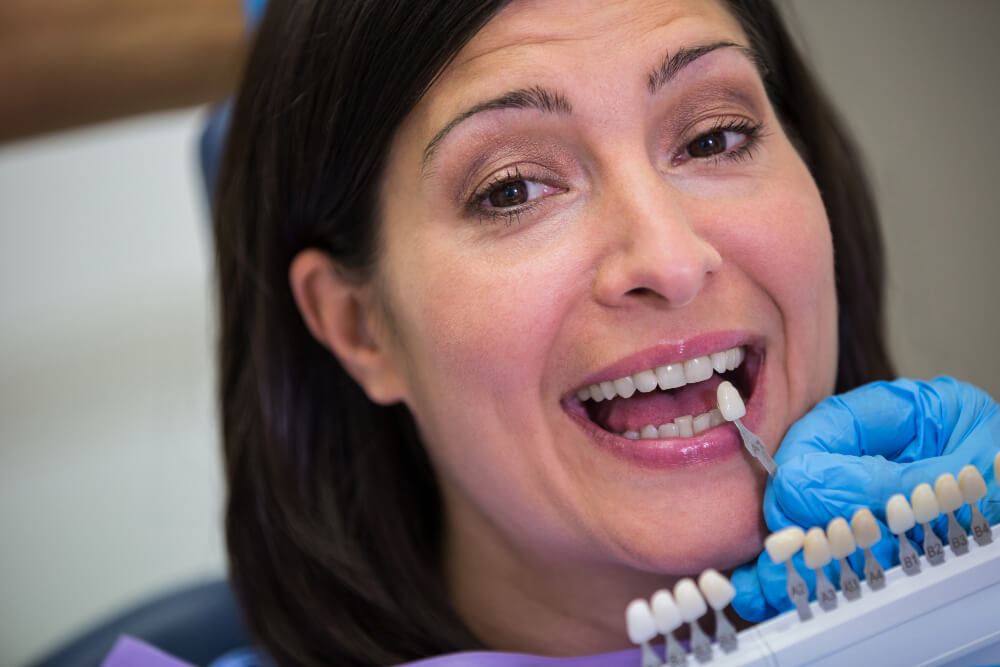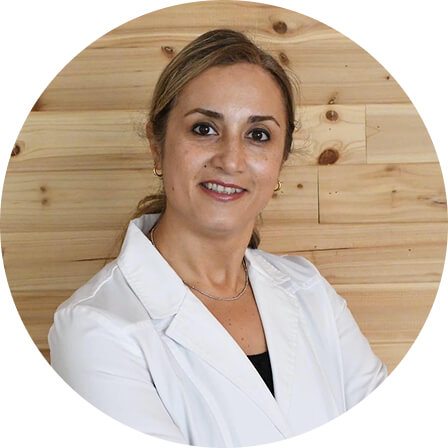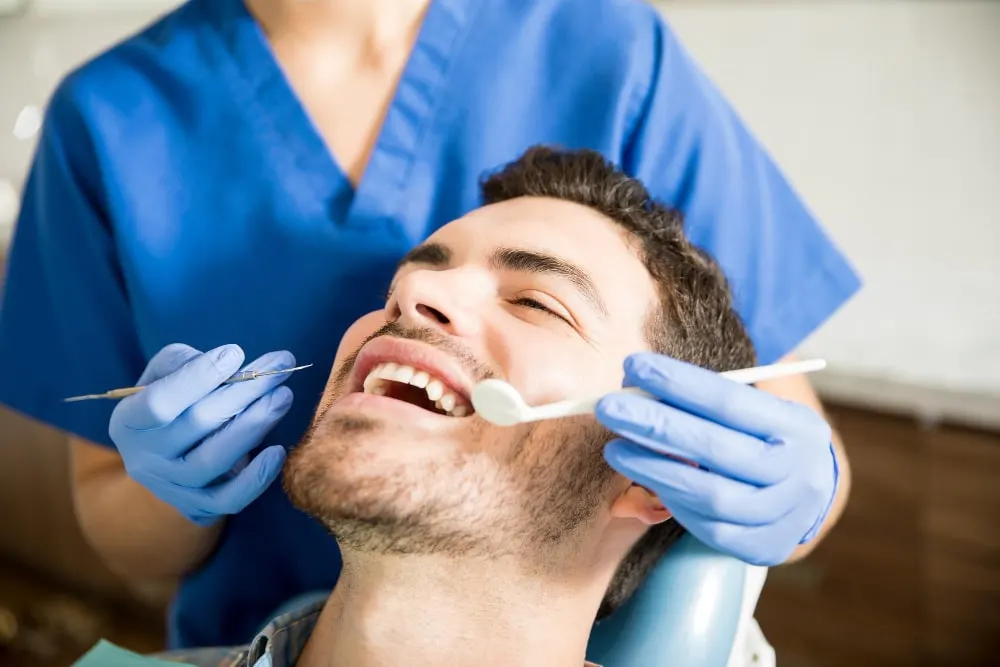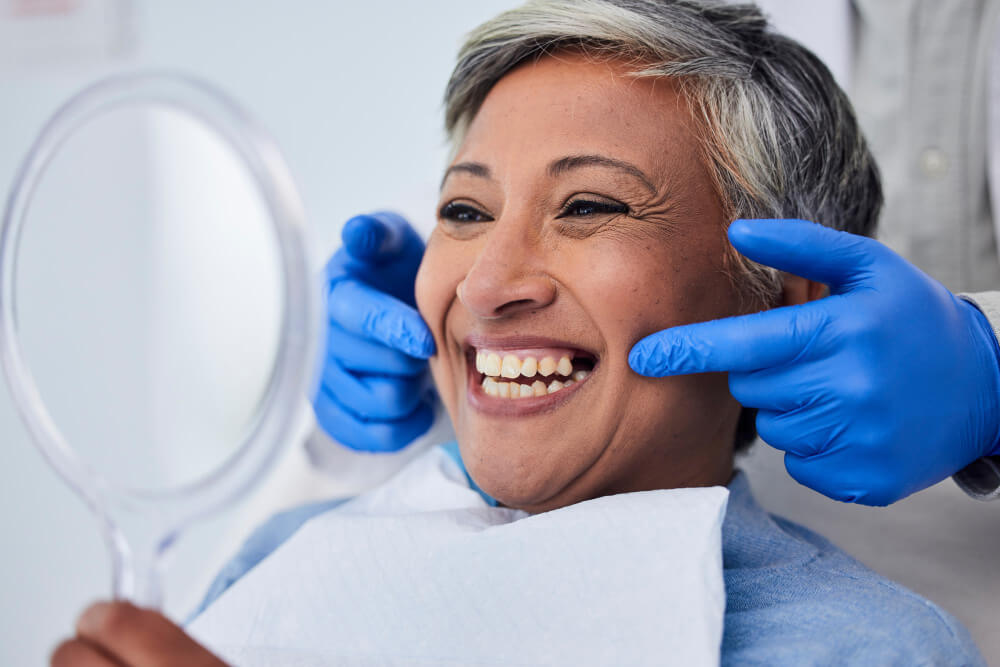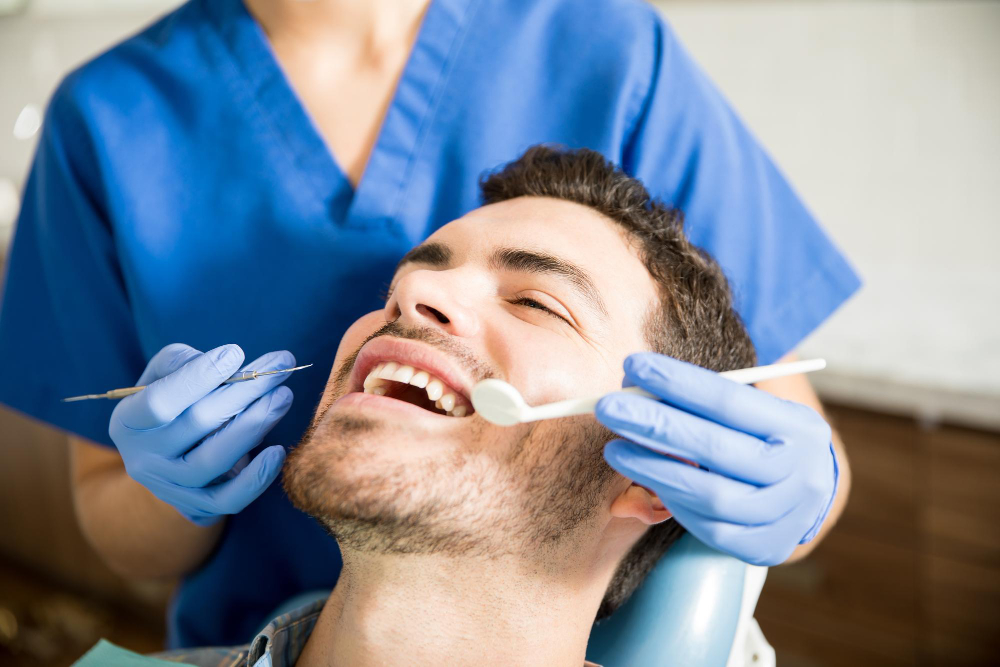Maintaining great oral hygiene isn’t just about brushing and flossing—it also involves getting regular professional cleanings to remove plaque, tartar, and bacteria. But your dental care doesn’t stop after teeth cleaning alone. What you eat after this treatment can significantly influence your recovery. Following the right post-cleaning diet and care can make the difference between a quick and comfortable recovery. In this article, Dr. Javadi will explain what to eat after teeth cleaning to support a smoother recovery.
Common Concerns After Teeth Cleaning
It’s not uncommon to feel some sensitivity after a dental cleaning, particularly if your dentist or hygienist had to work below the gum line or remove plaque. Some of the common concerns that people have include:
- Can I eat normally after a cleaning?
- Will food get stuck in my teeth or irritate my gums?
- Is it okay to drink hot or cold beverages right away?
These concerns are valid. Your gums can become inflamed, and your teeth may be sensitive to temperature or pressure. So, eating the wrong foods too soon can lead to further irritation or discomfort.
Risks of Poor Dietary Choices
Snacking on popcorn or chewing some ice after your treatment can adversely affect your recovery. They can trigger unnecessary pain and also interfere with healing. Eating the wrong foods after a dental cleaning can lead to:
- Increased inflammation or bleeding
- Aggravation of gum sensitivity
- Possible dislodging of protective blood clots (especially after deep cleanings)
Reintroduction of bacteria to freshly cleaned surfaces
It’s also worth noting that acidic drinks, like orange juice or soda can cause a sharp sting and weaken your teeth. And using straws, which many people do to avoid contact, can cause suction pressure that irritates healing gums.
Dr. Javadi’s Food Recommendations After Teeth Cleaning
Dr. Javadi recommends following a soft, nutritious diet for 24-48 hours after your cleaning. This will help the tissue to repair and reduce the risk of complications.
- Soft Foods:
- Mashed potatoes
- Scrambled eggs
- Applesauce
- Yogurt
- Oatmeal
- Smoothies (drink from a cup and not a straw)
- Steamed veggies and soup (lukewarm, not hot).
- Hydration Options: Keep yourself hydrated, as it will help promote healing and wash away residual bacteria.
- Water (room temperature)
- Herbal teas (like chamomile or peppermint)
- Coconut water
- Broth-based soups
- Nutrient-Rich Healing Foods: Select foods packed with vitamins and minerals, including:
- Bananas (soft, rich in potassium)
- Avocados (healthy fats reduce inflammation)
- Soft fish (like salmon)
- Steamed spinach or carrots (vitamins A and C)
Foods to Avoid
Dr. Javadi advises avoiding the following for at least 24–48 hours:
- Crunchy foods: chips, popcorn, raw vegetables
- Sticky or chewy foods: caramel, gummy candies, dried fruits
- Spicy foods: hot sauces, chili peppers
- Acidic foods: citrus fruits, tomatoes, vinegar-based dressings
- Very hot or cold items: extremes can shock sensitive teeth
- Alcohol and smoking: both slow healing and dry out the mouth
Additional Tips for a Comfortable Recovery
In addition to mindful eating, Dr. Javadi offers these tips:
- Stay hydrated: Aim for 6–8 glasses of water daily to support tissue repair and maintain saliva flow.
- Brush gently: Use a soft-bristle toothbrush.
- Rinse with saltwater: Dr. Javadi recommends rinsing your mouth with saltwater as it can soothe gum inflammation.
- Skip the straw: Avoid using straws for at least 2 weeks, as they can disrupt healing, especially after a deep cleaning.
- Monitor symptoms: If pain, swelling, or bleeding persists for more than 48 hours, schedule a follow-up.
While teeth cleaning is a proactive step in your dental care routine, how you care for your mouth afterward can affect the speed of your recovery. Choosing the right foods and staying hydrated can help you feel better faster, reduce post-procedure sensitivity, and protect your oral health in the long term.
However, if you notice that sensitivity persists for a week or more, it’s a good idea to consult your dentist. They can provide valuable insight and specific recommendations.
Schedule Your Dental Appointment Today
Looking for expert dental advice and care in the Seattle area? We’re here to help.
Call us at (425) 775-2002 to speak with a patient coordinator and schedule your appointment. today.
Additional Reads:
How Much is Teeth Cleaning Without Insurance? Cost Breakdown
